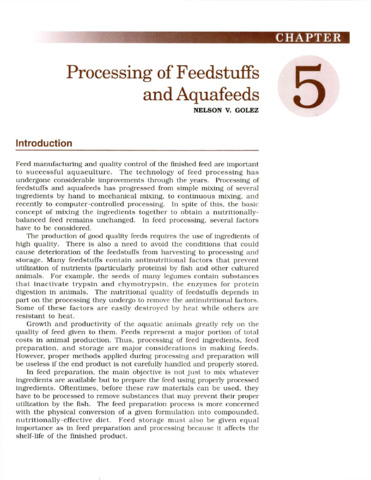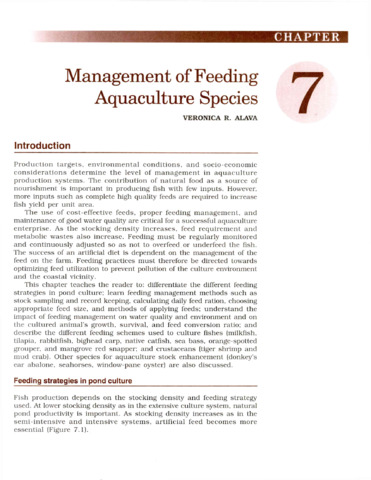Overview on the use of plant protein in aquaculture feed
- Global styles
- MLA
- Vancouver
- Elsevier - Harvard
- APA
- Help
Share
Abstract
Fish meal (FM) is the best and main protein source for fish and shrimp feed because of the favorable amino acid profile, highly unsaturated fatty acids, palatability and absence of antinutritional factors. Aquaculture production has increased (about 8-9% a year) and is expected to increase further at the same rate to meet the demand for increase world population and health concern. In this connection, more aquafeed is required. Aquafeed rely much on fish meal (FM) and fish oil (FO) for the supply of major essential nutrients (essential amino acids, essential fatty acids, mineral and attractant). Therefore, more FM is required. However, world fish meal production has been relatively static in the last 15 years and is unlikely to increase further, coupled with public pressure on sustainable feed (fish in fish out ratio or fish meal independent ratio). Thus, levels of FM use in fish feed will have to be reduced and replaced by alternative protein sources for a sustainable increase in aquaculture production. Therefore, the identification and development of alternative feed ingredients that can replace FM is recognized as an international research priority.
Consequently, several international integrated projects have been established in Europe, USA and Australia to reduce fish meal and fish oil in fish feeds. A European integrated project involving 14 countries, 32 partners with 4 major programs has been established to develop feeds from sustainable alternatives to fish meal and fish oil to produce safe, healthy seafood; assess the health benefits of fish farmed on the new diets; assess the safety of fish farmed on the new diets; assess perceptions regarding farmed fish and to devise a framework to communicate the risk and benefit of consuming farmed fish to the public and other stake holders. The strategic goal of this project is to tailor aquaculture feeds to produce high-quality fish with significantly reduced use of fish meal (FM) and fish oil (FO).
Suggested Citation
Boonyaratpalin, M. (2015). Overview on the use of plant protein in aquaculture feed. In M. R. Catacutan, R. M. Coloso, & B. O. Acosta (Eds.), Development and Use of Alternative Dietary Ingredients or Fish Meal Substitutes in Aquaculture Feed Formulation : Proceedings of the ASEAN Regional Technical Consultation on Development and Use of Alternative Dietary Ingredients or Fish Meal Substitutes in Aquaculture Feed Formulation, 9-11 December 2014, Nay Pyi Taw, Myanmar (pp. 105-107). Tigbauan, Iloilo, Philippines: Aquaculture Department, Southeast Asian Fisheries Development Center.
Type
Conference paperISBN
9789719931058
Related items
Showing items related by title, author, creator and subject.
-
Processing of feedstuffs and aquafeeds
Golez, Nelson V. (Aquaculture Department, Southeast Asian Fisheries Development Center, 2002)This chapter will help the reader understand and appreciate the basic principles of processing, preparation, storage, and quality control in the preparation of aquafeeds. The material in this section is presented in sequence ... -
Management of feeding aquaculture species
Alava, Veronica R. (Aquaculture Department, Southeast Asian Fisheries Development Center, 2002)This chapter teaches the reader to: differentiate the different feeding strategies in pond culture; learn feeding management methods such as stock sampling and record keeping, calculating daily feed ration, choosing ... -
Development and use of alternative ingredients or fish meal substitutes in aquaculture feed formulation: Proceedings of the ASEAN Regional Technical Consultation on Development and Use of Alternative Dietary Ingredients or Fish Meal Substitutes in Aquaculture Feed Formulation
Catacutan, Mae R.; Coloso, Relicardo M.; Acosta, Belen O. (Aquaculture Department, Southeast Asian Fisheries Development Center, 2015)Recognizing the need for a concerted effort to follow-up on this priority issue of the ASEAN on aquaculture feed development and utilization. SEAFDEC (Aquaculture Department and Secretariat) and the Government of Myanmar ...






